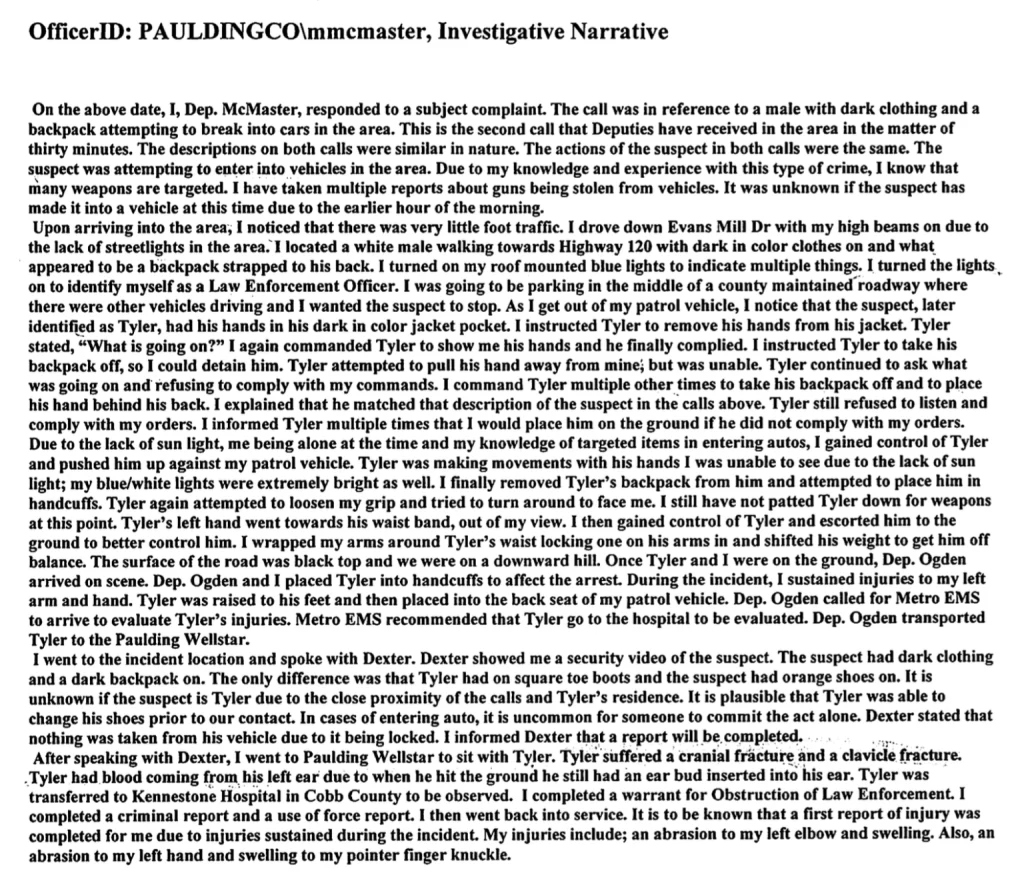Imagine a normal day in the life of a twenty to thirty-something. You pack up your bag and get ready for work. It is winter so it gets dark early, you throw on your backpack, put in your earbuds, and start your walk. It is not far so no need to drive. Shortly thereafter a squad car pulls up, lights flashing. An officer jumps out, starts yelling at you. You can’t hear him so you begin to take off your earbuds. He shouts louder and begins to arrest you. But wait, “Why are you arresting me?” Next thing you know you are body slammed on the ground, have your collarbone broken and are screaming in pain with a fractured skull as you lay in the back of the police vehicle. But this is no tale, this is exactly what happened to Tyler Canaris in Georgia. The Paulding County deputy Michael Mahlon McMaster did exactly this.
Was he obstructing justice? Watch the video for yourself and read the article over at the source, but to us it looks like the deputy is clearly in the wrong. But of note, the Georgia Gazette article features this story with the victim’s mugshot, instead of McMaster, whom it does not even mention by name. The analysis by Heavy does a much better job analyzing the situation. The problem here is that qualified immunity ensures that cases like this are almost never punished as they should be. Even if the police department is found liable, the liability shifts to the tax payer should Mr. Canaris be successful in a suit. And what about criminal charges against the officer for assaulting a man who was no threat to him? If a civilian fractured the skull of a law enforcement officer we would be seeing attempted murder. We get it, police do have a hard job, and there are many who do a service to the community. But power attracts those who deserve it least. And if we have a system where abuse goes unpunished, it will only serve to attract the abusers. Our future police officers should be attracted to the job by the prospects of justice, respect, and community. Not impunity.

What is a common theme in a case like this is, is the “what if.” The deputy goes into great length to describe why he was so quick to rush judgement. The officer has no place being the judge, jury, and executioner on the basis of his own fear.
